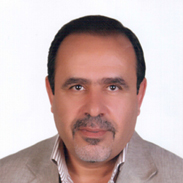Articles > > Sudden Awakening
Articles - Others - Date: 2025-05-28
There has been disagreement in interpreting the sudden 'awakening' that has swept Western capitals regarding the slaughter, dispossession, starvation, and displacement occurring in Gaza. Governments that rushed in droves to Tel Aviv after October 7 to offer aid and provide signs of solidarity and sympathy, some of which had partnered with the occupation state in committing genocide and ethnic cleansing against Arabs, seem to have shifted their positions, creating a 'safe distance' between themselves and Israel.
From condemnation and denunciation to hinting at recognizing a Palestinian state, to invoking the ultimate common denominator of the two-state solution, hardly any European country has refrained from participating in this coordinated and synchronized 'awakening,' which appears not to be entirely independent of the wishes of the 'American maestro,' nor to have arisen solely from European inner convictions. Nevertheless, no reasonable observer can belittle its significance, regardless of its hidden or apparent motivations, judging by the reactions it has sparked within the Israeli apartheid state, with most expressing a fear of isolation and the growing perception among its historical allies that Israel is becoming a 'rogue and pariah state.'
It goes without saying that this official 'awakening' would not have emerged had it not been for the global and international community's exasperation with Israel's war on Gaza, which has dragged on, causing immense disasters for the Strip's civilians, men, women, and children alike. Nor would it have occurred without the unprecedented reaction of European public opinion to the episodes of genocide and ethnic cleansing throughout the twenty months of war, and especially in the recent period, as European cities have recorded unprecedented numbers of demonstrations and protesters.
One interpretation usually associated with conspiracy theories would suggest that this 'awakening' came at the U.S.'s prompting, as part of an 'exchange of roles' between the Old Continent and the new world. This has happened before, in different times and places, and could well be happening now, as always with the goal of containing the recklessness of the fascist right-wing in Tel Aviv and preventing it from plunging deeper into Palestinian bloodshed and desecration.
In any case, neither downplaying the impact of this 'awakening' nor exaggerating its significance is an appropriate approach. The 'awakening' has come too late, after nearly sixty thousand martyrs have fallen and the Strip has been leveled over the heads of its inhabitants. Moreover, this 'awakening' falls short of criminalizing Israel or prohibiting the spilling of Palestinian blood in staggering amounts, except for in a rare few Western capitals, no more than can be counted on one hand.
There is ample evidence that the European awakening is too little, too late, including the continued flow of European arms to Israel's killing machine, as recently reaffirmed by the new German chancellor. Also telling are reports that Paris might be preparing to recognize an independent Palestinian state in a way that would strip the recognition of any meaning, by weighing it down with conditions the Palestinians must fulfill or framing it within a context of 'mutual recognition' binding 'all Palestinians', including resistance factions, not just the PA or the PLO. We still do not know what exactly President Emmanuel Macron is planning, but the leaks regarding this matter are not particularly reassuring, especially since the idea of recognizing a Palestinian state, without it actually existing on the ground or mechanisms to bring it to life, remains largely symbolic and lacks real, tangible effect.
Revisiting the EU/Israel partnership agreements and some nations suspending pre-existing accords or postponing negotiations on new ones are all steps in the right direction, even if insufficient to fully isolate Israel or make it pay for its crimes, especially when we consider that Europe, from Israel's perspective, is an indispensable partner. Europe is the one that initiated the project of planting Israel in the region (the Balfour Declaration) and ensured its military edge and entry into the nuclear club (through the Dimona reactor) under French sponsorship. This means Europe is capable of doing much more.
Yet, we remain bound by the logic of comparing European positions, both official and popular, to their Arab counterparts. Here, the comparison ends up favoring the West, and the Arabs lose the match, both at the official and popular levels. Officially, we have not heard about a single Arab government canceling pre-existing peace treaties or Abraham Accords with Israel or suspending or freezing negotiations over potential future agreements. Military and security coordination and joint exercises continue with Israeli soldiers and officers who are drenched in Palestinian blood from head to toe. Trade routes continue to supply the arteries of the Israeli economy with whatever it requires, aiding the Israeli consumer when their government cannot supply their needs through air or sea ports. In cases where there has been any disruption in trade or normalization, the cause has been Israeli.
On the popular level, with few exceptions that only prove the rule, European and even American streets have been more active than most Arab streets, some of which have not stirred at all, and others which have begun to show fatigue and boredom due to the war's length. The Arab public has become desensitized to images of mutilated bodies, destruction, and flowing blood, whereas the Western street has not.
The Western public rose up against genocide, despite crackdowns, extortion, intimidation, and the sword of 'antisemitism' hanging over the necks of its sons and daughters. Meanwhile, the Arab street remains cowed by a culture of fear, as Arab states engage in competing media campaigns to prove which one has given the most aid to Gaza and its people, without bothering to ask what became of this aid, and whether it reached its final destination or stalled at borders and checkpoints. Nor do they ask whether the 'relief diplomacy' adopted by several Arab states, regardless of its effectiveness, could ever substitute or compensate for 'relief through diplomacy', which is the very least that can be provided. The Arab order has failed Gaza, most likely without a second chance to redeem itself. While the European order has also failed that same test, it still has chances to recover and possibly improve under the pressure of the bloodshed and public opinion.
Both the Arab and European orders are no friends to the Palestinian resistance; both lie in wait for it at every turn. But the truth must be told: The Arab order appears more effective in 'encircling' the resistance and severing its lifelines. The resistance is under systematic, organized attack, not only in its Palestinian stronghold but also in neighboring countries and the diaspora, as always under pretexts and excuses that seem merciful on the surface but are in fact cruel, that sound like righteous speech while concealing deep injustice.
We have witnessed this in the new Syrian administration's campaign to drive out Palestinian leaders after launching campaigns to seize weapons and shut down camps and many offices. We saw it again in the Palestinian president's ill-fated visit to Lebanon, during which he did not even bother to pay tribute to the thousands of martyrs from the Lebanese resistance, including senior leaders. He behaved as if he were a presidential envoy for the Arab order, seizing an opportune moment to exert maximum pressure on both the Palestinian and Lebanese resistance, to embarrass and expel them from the scene. It was almost as if we were witnessing another round of visits to Lebanon from Morgan Ortagus or Amos Hochstein.
In conclusion, the 'European awakening,' despite its flaws and shortcomings, opens a window of hope, however small, for an imminent breakthrough in Gaza, while the 'Arab slumber' has been, and continues to be, a decisive factor in encouraging Israel to persist in its arrogance and savagery, without fear of consequences or punishment, even though it was the Arabs who have long said: 'He who is safe from punishment, behaves badly.' They allowed Israel to feel safe from punishment and to escape, so it has behaved badly, not only with Arab resistance movements and their supporters but with the capitals of the Arab 'moderate camp' as well.




